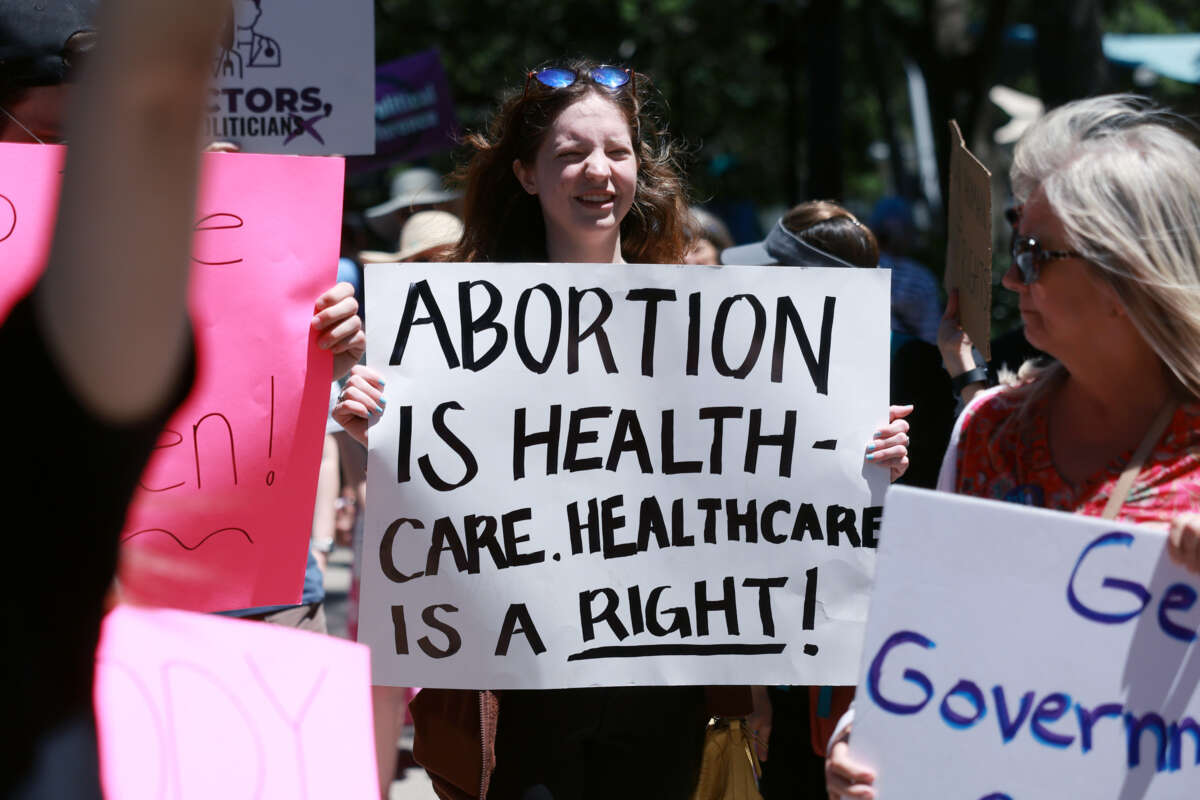Health care providers aren’t allowed to tell law enforcement about a patient’s abortion if they received the procedure in a state where it is legal, it is protected by federal law, or it is permitted by state law, the Biden administration said Monday.
The new rule is based on the federal Health Insurance Portability and Accountability Act, or HIPAA. It could shield patients’ medical information if they live in a state with an abortion ban and travel elsewhere to seek care. Those are details that could show up in their health records if they seek subsequent medical care in their home state.
But it’s unclear whether it will protect medical data for people who self-manage their abortions by receiving medication in the mail, often from a prescribing physician in a state with laws protecting reproductive rights.
The rule will take effect in 30 days, and it represents a meaningful shift. Though HIPAA generally protects medical information stored by health plans and health providers, it has historically included a carveout for law enforcement. While health care providers are not obligated to turn over a patient’s medical records to law enforcement, they are generally allowed to.
The new federal rule closes that loophole for abortions that were clearly legal in the state where they were provided, along with medical information regarding other forms of reproductive health care, such as pregnancy tests or contraceptive care. It should provide a level of protection for physicians who may feel pressure to cooperate with a law enforcement investigation, said Melanie Fontes Rainer, head of the Health and Human Service Department’s Office of Civil Rights.
“We want to make sure people can go to the doctor and not be scared to talk to the doctor,” Fontes Rainer told The 19th.
That could extend privacy protections to countless Americans. In the time since Roe v. Wade has been overturned, thousands of patients in states with abortion bans have traveled elsewhere to seek the procedure in a place where it remains legal. One study from December 2023 found that 1 in 5 abortions performed in the first six months of 2023 were for people who traveled out of state.
Though abortion is an incredibly safe and effective procedure, patients may want to seek follow-up care — to ensure that they are no longer pregnant, or if they are concerned about bleeding after a medication abortion. But doctors in states with legal abortion have reported many patients voicing anxiety that going to a physician in their home state could put them in legal jeopardy.
“Women are scared to go get follow-up care because they now have an electronic health record, they have something in their file that says they’ve had an abortion. We’ve heard firsthand of these experiences,” Fontes Rainer said. “That protected health information would be protected from those fishing expeditions.”
Patients who believe their rights under HIPAA have been violated can file a complaint with the Office of Civil RIghts.
Fontes Rainer declined to answer questions about how the rule could affect self-managed abortion specifically, and the rule is silent on that issue.
Ambiguity on that matter could leave thousands more patients afraid, confused, or even at legal risk. Pregnant patients who cannot travel, perhaps because of the financial cost, or inability to find the time off from work or child care, have in growing numbers relied on new mechanisms to acquire medication abortion pills in their home states, either from a prescribing doctor in another state or country, or through more local community networks.
Per one study, provision of those pills increased by almost 28,000 in the first six months after Roe’s overturn. Not all those pills are immediately used — some patients order pills to make sure they have them on hand if they need an abortion later on. But they indicate just how meaningful this avenue has become for people seeking abortions from states with bans.
It’s not clear if those abortions would fall under the federal rule’s definition of “legal” reproductive health care. Though state abortion bans do not criminalize pregnant patients’ behavior, they do restrict when and how medication abortion can be prescribed.
Federal rules and regulations will not be able to address all implications from overturning Roe v. Wade, a decision made in the case Dobbs v. Jackson Women’s Health Organization, HHS Secretary Xavier Becerra told reporters at a press conference Monday.
“We have no illusion that everything that the president has urged us to do with our authorities is going to undo Dobbs. Dobbs took away rights,” Becerra said. “Until we have a national law that re-institutes Roe v. Wade, we’re going to have issues.”
Media that fights fascism
Truthout is funded almost entirely by readers — that’s why we can speak truth to power and cut against the mainstream narrative. But independent journalists at Truthout face mounting political repression under Trump.
We rely on your support to survive McCarthyist censorship. Please make a tax-deductible one-time or monthly donation.
